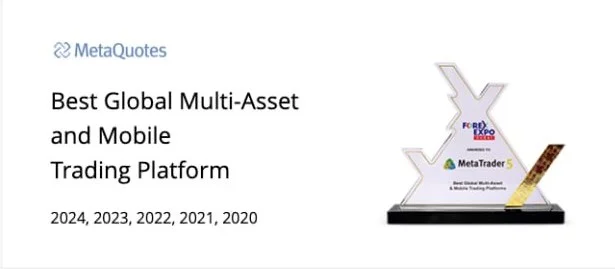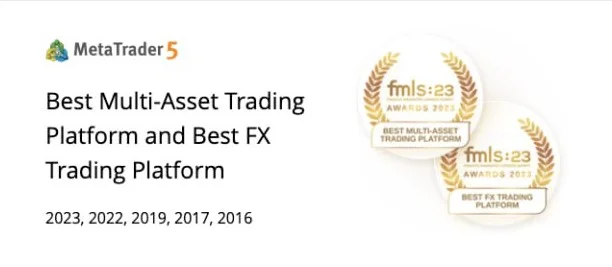A quick Yahoogleing (that’s Yahoo, Google, plus Bing) search of “forex + news” or “forex + data” returns a measly 30 million results combined.
30 MILLION! That’s right! No wonder you’re here to get some education!
There’s just way too much information to try to process and way too many things to confuse any newbie forex trader. That’s some insane information overload if we’ve ever seen it.
But information is king when it comes to making successful trades.
Currency price moves because of all of this information: economic reports, a new central bank chairperson, and interest rate changes.
News moves fundamentals and fundamentals move currency pairs!
It’s your goal to make successful trades and that becomes a lot easier when you know why the price is moving that way it is. Successful forex traders weren’t born successful; they were taught or they learned.
Successful forex traders don’t have mystical powers (well, except for Pipcrawler, but he’s weirder than he is mystical) and they can’t see the future.
What they can do is see through the blur that is forex news and data, pick what’s important to traders at the moment, and make the right trading decisions.
Where to Find Forex News and Market Data
Market news and data are available through a multitude of sources.
The internet is the obvious winner in our book, as it provides a wealth of options, at the speed of light, directly to your screen, with access from almost anywhere in the world.
But don’t forget about print media and the good old tube sitting in your living room or kitchen.
Individual forex traders will be amazed at the sheer number of currency-specific websites, services, and TV programming available to them.
Most of them are free of charge, while you may have to pay for some of the others. Let’s go over our favorites to help you get started.
Traditional Financial News Sources
While there are tons of financial news resources out there, we advise you to stick with the big names.
These guys provide around-the-clock coverage of the markets, with daily updates on the big news that you need to be aware of, such as central bank announcements, economic report releases, and analysis, etc.
Many of these big players also have institutional contacts that provide explanations about the current events of the day to the viewing public.
Real-time News Feeds

If you’re looking for more immediate access to the movements in the currency market, don’t forget about that 80-inch flat-screen TV in your bathroom!
Financial TV networks exist 24 hours a day, seven days a week to provide you up-to-the-minute action on all of the world’s financial markets.
In the U.S., the top dogs are (in random order), Bloomberg TV, Fox Business, CNBC, MSNBC, and even CNN. You could even throw a little BBC in there.
Another option for real-time data comes from your forex trading platform.
Many forex brokers include live newsfeeds directly in their software to give you easy and immediate access to events and news of the currency market.
Check your broker for the availability of such features, not all brokers’ features are created equally.
Economic Calendars

Wouldn’t it be great if you could look at the current month and know exactly when the Fed is making an interest rate announcement, what rate is forecasted, what rate actually occurs, and what type of impact this change has on the currency market? It’s all possible with an economic calendar.
The good ones let you look at different months and years, let you sort by currency, and let you assign your local time zone. 3:00 pm where you’re sitting isn’t necessarily 3:00 pm where we’re sitting, so make use of the time zone feature so that you’re ready for the next calendar event!
Yes, economic events and data reports take place more frequently than most people can keep up with. This data has the potential to move markets in the short term and accelerate the movement of currency pairs you might be watching.
Lucky for you, most economic news that’s important to forex traders is scheduled several months in advance.
So which calendar do we recommend?
We look no further than our very own BabyPips.com forex economic calendar to provide all that goodness!
If you don’t like ours (which we highly doubt), a simple Yahoogleing search will offer up a nice collection for you to examine.
Market Information Tips
Keep in mind the timeliness of the reports you read. A lot of this stuff has already occurred and the market has already adjusted prices to take the report into account.
If the market has already made its move, you might have to adjust your thinking and current strategy. Keep tabs on just how old this news is or you’ll find yourself “yesterday’s news.”
You also have to be able to determine whether the forex news you’re dealing with is fact or fiction, rumor, or opinion.
Economic data rumors do exist, and they can occur minutes to several hours before a scheduled release of data.
The rumors help to produce some short-term trader action, and they can sometimes also have a lasting effect on market sentiment.
Institutional traders are also often rumored to be behind large moves, but it’s hard to know the truth with a decentralized market like spot forex. There’s never a simple way of verifying the truth.
Your job as a forex trader is to create a good trading plan and quickly react to such news about rumors after they’ve been proven true or false.
Having a well-rounded risk management plan, in this case, could save you some moolah!
And the final tip: Know who is reporting the news.

Are we talking analysts or economists? Or the owner of the newest forex blog on the block? Maybe a central bank analyst?
The more reading and watching you do of forex news and media, the more finance and currency professionals you’ll be exposed to.
Are they offering merely an opinion or a stated fact based on recently released data?
The more you know about the “Who”, the better off you will be in understanding how accurate the news is.
Those who report the news often have their own agenda and have their own strengths and weaknesses.
Get to know the people that “know”, so YOU “know”. Can you dig it?


